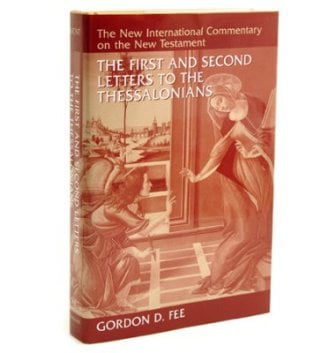7:55 AM I am very blessed to live in the countryside. This is the view I get to see most every morning from my front porch as I read my Bible.
 I love the view. Like, love it. I’m talking about my Bible. Oh yes, the sunrise is nice too. So is nature. There’s so much to love in life. I love the outdoors. I love humor. I love sarcasm and witty people. I love symmetry and precision and balance and saliency. That’s why I was thrilled to be in Phil. 1:27-30 this morning. I felt like I was a 4-year old locked in a candy store. Thank you, Paul, for making your POINT so clearly. You know, folks, Phil. 1:27 contains the most important verb in the entire letter. (I know you’re cynical. Stay with me.)
I love the view. Like, love it. I’m talking about my Bible. Oh yes, the sunrise is nice too. So is nature. There’s so much to love in life. I love the outdoors. I love humor. I love sarcasm and witty people. I love symmetry and precision and balance and saliency. That’s why I was thrilled to be in Phil. 1:27-30 this morning. I felt like I was a 4-year old locked in a candy store. Thank you, Paul, for making your POINT so clearly. You know, folks, Phil. 1:27 contains the most important verb in the entire letter. (I know you’re cynical. Stay with me.)
 Let’s set aside, to begin with, all of the standard translations for a moment. Paul is not telling us to “conduct ourselves” or “live” in a manner worthy of the Gospel. Consider his use of the verb politeuesthe (“live as good citizens”). Philippi was a Roman colony, remember? So it only makes sense that Paul would appeal to the Philippians’ sense of civic duty. Which is exactly what he does with this verb — the letter’s first imperative. (Told you it was important.) Note the following:
Let’s set aside, to begin with, all of the standard translations for a moment. Paul is not telling us to “conduct ourselves” or “live” in a manner worthy of the Gospel. Consider his use of the verb politeuesthe (“live as good citizens”). Philippi was a Roman colony, remember? So it only makes sense that Paul would appeal to the Philippians’ sense of civic duty. Which is exactly what he does with this verb — the letter’s first imperative. (Told you it was important.) Note the following:
 And this:
And this:
 Today most of us don’t live in real communities so we don’t know what Paul is talking about. But for those of us who live in rural settings … bingo! When I first moved to North Carolina 20 years ago, I joined the local volunteer fire department, like this one.
Today most of us don’t live in real communities so we don’t know what Paul is talking about. But for those of us who live in rural settings … bingo! When I first moved to North Carolina 20 years ago, I joined the local volunteer fire department, like this one.
 See the words “Our Duty”? If you were a MAN in Granville County, North Carolina, you joined the VFD. It was as simple as that. It was my civic duty. Didn’t matter that I was pretty lousy at operating the fire hoses. I was so bad that, in fact, I was eventually “promoted” to chaplain. Still, I faithfully attended our monthly meetings, turned out in full gear for all training sessions, and was often the first on the scene of a house fire or a car accident. I think I know a little about what it means to belong to a “community.”
See the words “Our Duty”? If you were a MAN in Granville County, North Carolina, you joined the VFD. It was as simple as that. It was my civic duty. Didn’t matter that I was pretty lousy at operating the fire hoses. I was so bad that, in fact, I was eventually “promoted” to chaplain. Still, I faithfully attended our monthly meetings, turned out in full gear for all training sessions, and was often the first on the scene of a house fire or a car accident. I think I know a little about what it means to belong to a “community.”
Let me pause to remind everybody I’m pretty apolitical on this blog, intentionally so. Politics, for me, is largely a huge distraction from what God’s called me to do. But here, in this passage, politics can’t be avoided, for the simple reason that Paul is using a political metaphor to make his point. The inhabitants of Philippi were, quite simply, proud of the fact that they lived in a Roman colony. Almost half of the population enjoyed Roman citizenship. Hence Paul’s wordplay. It goes something like this:
Now the only thing in life that really matters is that you live out your citizenship in a manner required by the Gospel of Christ, so that, whether or not I’m able to go and see you in person, I will hear that all of you are standing side by side with one common purpose: to work together for the faith of the Gospel.
The use of this political metaphor is, as Fee reminds us, “a brilliant stroke” (p. 78). The “civic” responsibilities Paul has in mind are the duties incumbent upon all of us as citizens of heaven (see 3:20). This helps untangle us from the God and Country narrative that so often entraps us and sets God free to be God instead of just another idol we worship along with Caesar. It lends restraint when declaring our political views as “Christian” because sometimes my political allegiances sound suspiciously like the American Dream rather than like the Gospel Commission. The Gospel for Paul is ultimately about loyalty. Which “god” gets my allegiance? The state or the Gospel? Our allegiance is not to Caesar Kurios (Lord Caesar) but to Iesous Kurios (Lord Jesus), before whom every knee will one day bow, including those of the emperor himself. We are citizens of the kingdom of heaven. This is our place. These are our people. This is our life. Paul is asking us to rethink our priorities. Get a handle on who we are. On what we value. On how we want to live. Young Christian, it’s time to live for the Gospel. Retiree, it’s time to place the Gospel first. Greek prof, a worthy life involves living for others as Christ loved them, sharing with them the ridiculous mercy God has poured out on you. This is our high calling as citizens of heaven. God makes us worthy of the Gospel of Christ as we desire His kingdom above everything else. No early citizenship could ever be more important than our heavenly citizenship. And guess what — we have access to this kingdom now: love, kindness, sacrifice, patience in the midst of persecution, joy in the midst of sorrow, self-control.
This was the high calling of every Philippian who claimed the name of Jesus, and it’s my calling too, and yours.
 I wonder if Paul might be alluding to them in Phil. 4:5, where he uses the Greek term epieikes, often translated “gentleness.” The temple carving means something like “Nothing in excess.” Hawthorne prefers “big-heartedness,” but then adds, “For big-heartedness one may substitute any of the following: forbearance, yieldedness, geniality, kindliness, gentleness, sweet reasonableness, considerateness, charitableness, mildness, magnanimity, generosity” (p. 193). The goal is to “meet people halfway,” to “not insist on one’s own rights all the time.” Forgive me for beating a dead horse, but, again, don’t we see this in Paul’s discussion of the Roman “preachers” in 1:15-17? Paul could have gotten on their case because of their false motives. The fact is, they are advancing the Gospel, and for Paul that’s the main thing. Yet isn’t it also possible that Paul has chosen to highlight these ill-willed evangelists because they are causing strife and division in Rome, much like the Philippians themselves were possibly polarizing around two women whom Paul actually names in 4:2? I think the point is this: Paul is being tactful. He wants to address the issue of division (or at least disharmony) among the Philippians, but he’s willing to bide his time. First he has to set the backdrop: the life and ministry of Jesus. This tactfulness on the part of Paul is whispering to me, “Not so fast in becoming argumentative when you disagree with people, Dave.” I’ve got a dozen emails I still haven’t answered, and one of them is, let’s just say, a bit uncharitable. Epieikes doesn’t apply to me, does it? Surely not.
I wonder if Paul might be alluding to them in Phil. 4:5, where he uses the Greek term epieikes, often translated “gentleness.” The temple carving means something like “Nothing in excess.” Hawthorne prefers “big-heartedness,” but then adds, “For big-heartedness one may substitute any of the following: forbearance, yieldedness, geniality, kindliness, gentleness, sweet reasonableness, considerateness, charitableness, mildness, magnanimity, generosity” (p. 193). The goal is to “meet people halfway,” to “not insist on one’s own rights all the time.” Forgive me for beating a dead horse, but, again, don’t we see this in Paul’s discussion of the Roman “preachers” in 1:15-17? Paul could have gotten on their case because of their false motives. The fact is, they are advancing the Gospel, and for Paul that’s the main thing. Yet isn’t it also possible that Paul has chosen to highlight these ill-willed evangelists because they are causing strife and division in Rome, much like the Philippians themselves were possibly polarizing around two women whom Paul actually names in 4:2? I think the point is this: Paul is being tactful. He wants to address the issue of division (or at least disharmony) among the Philippians, but he’s willing to bide his time. First he has to set the backdrop: the life and ministry of Jesus. This tactfulness on the part of Paul is whispering to me, “Not so fast in becoming argumentative when you disagree with people, Dave.” I’ve got a dozen emails I still haven’t answered, and one of them is, let’s just say, a bit uncharitable. Epieikes doesn’t apply to me, does it? Surely not.











